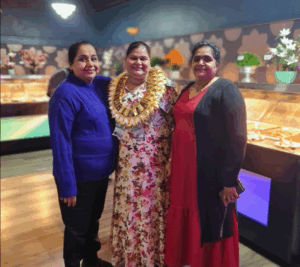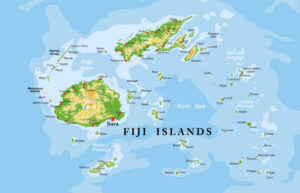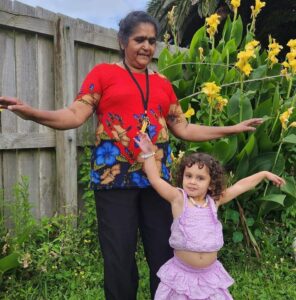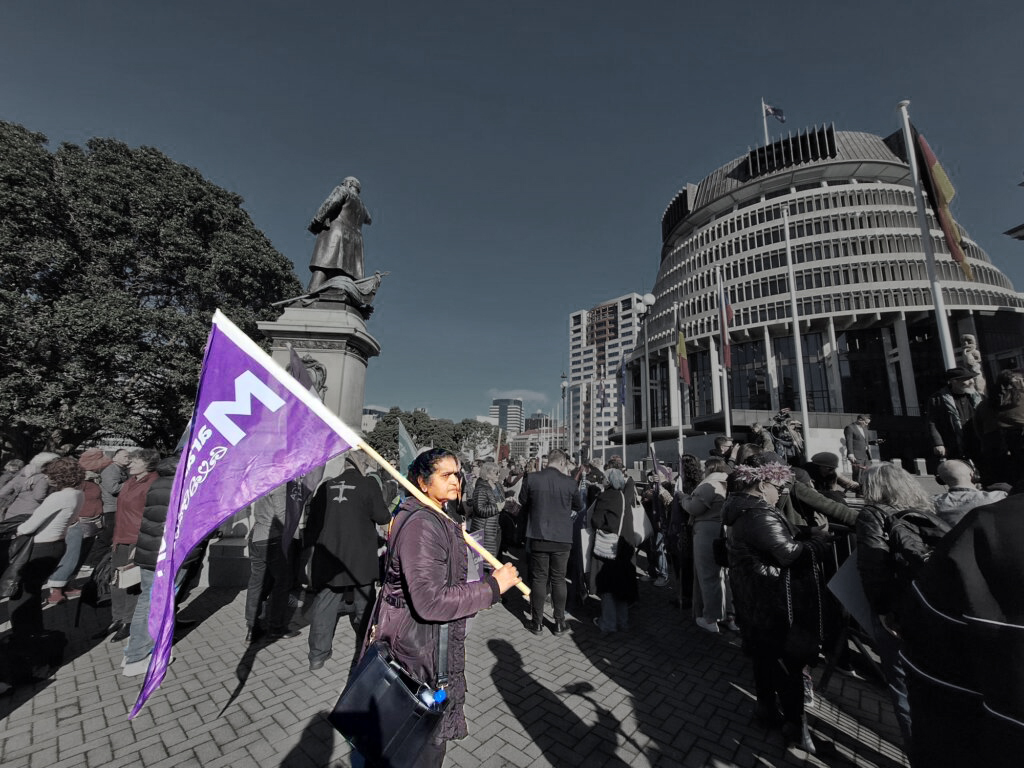Over the past 15 years, Sarita Sharma hasn’t missed any demonstrations in Wellington where nurses, care and support workers and nursing graduates have tried to highlight their struggles with the health system and successive Governments.
She’s always there – in the rain, scorching heat and polar blasts. She never pulls a sickie when it comes to standing up for nurses – and patients – who she describes as her “village”.
Sharma is from Fiji, raised in a village on the island of Viti Levu as the oldest of nine siblings whose grandparents migrated there from India in the early 1900s.

Family duties brought her and her husband Tam to Aotearoa 20 years ago to care for his parents who migrated to our shores a couple of decades earlier.
An Indian goddess
In the language of her heritage, Hindi, her name Sarita means incarnation of an Indian goddess. So when I asked her for her age, she replied with a cheeky smile: “Just use what I told you about the goddess.”
Sarita says she would not be able to do her job without the support of her loving husband Tam.
“My husband is always there for me. He works too, he’s a sign maker but my work really keeps us, and he appreciates that. So don’t worry, I’m a bit of a boss on the home front.”

The couple live in Porirua and have three adult children and six grandchildren.
In fact, Tam is so dedicated to her and her mahi that for more than a decade, five nights a week, he has been dropping her off and picking her up from her job at Wellington Hospital’s medical ward, where she has been working as an enrolled nurse on the permanent graveyard shift (9.30pm to 7.30am).
“He doesn’t ever moan and he’s never late. I am very lucky,” Sharma says.
But what keeps her ticking when most would go home straight after a shift like that and sleep rather than wait around in the city, for the next demonstration?
Village upbringing made her care
She brings her passion down to the way she was raised.
“For us people raised in the islands, everything is about family. Everything is about caring for people. I was raised to be like that — look out for my younger siblings, my elders, my cousins, my family – everyone in and around the village.

“These nurses, all the health staff who work in hospitals, aged care and right across the health system – they are my family now. So going to every single rally and picket is my way of saying, I care for them, and I will always be there for them.”
Sharma says nursing started for her as a young woman growing up in Fiji.
“We were raised to care and to nurse everyone in our village, from the babies to the elderly. When I got to New Zealand, I enrolled in a nursing degree but then life happened, I got sick and had to pull out.
“I worked alongside my husband making signs for a while then got back into it.”
Desperate for more time to sit with the dying
The biggest worry right now for Sharma is not having the time to be a proper nurse.
“Because of the under staffing, we don’t have the time to sit with our patients, even the ones who are dying and don’t have family or friends visiting them.

“We just do the observations and medications. But the other things we’d usually do, we don’t have time for anymore. We don’t have time to be human.
“I do get angry not being able to just sit and talk and be there with most patients who are dying. No one should die lonely, but many are.”
Finding a balance
Not taking work, or the stress from it, home has kept Sharma cool, calm and collected in a very traumatising, but rewarding, job.

“Work is work. I’ve learnt not to take it home.”
And while members of her family, are asking what her retirement plans are as she nears 65, Sharma is not about to lie down and rest just yet.
“I will keep going until I drop. Even if I’m in crutches, I’ll still be working.”




